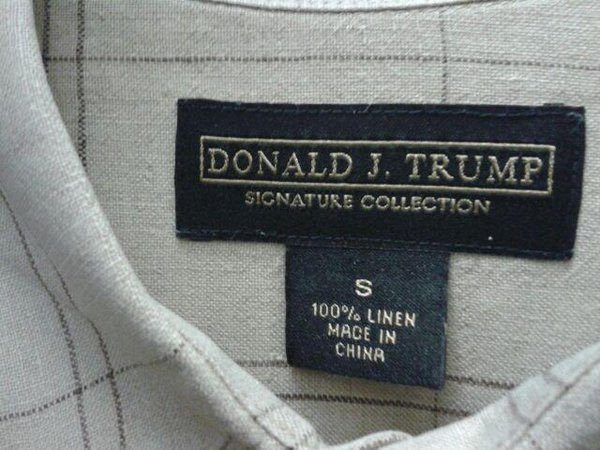Watching the President speak about China and the tariff/trade war he initiated against China is exhausting. One day he says a deal is in the works and the stock market soars. The next day he tweets something offensive to Chinese sensibilities, adds a threat of new tariffs on more Chinese goods, and the market tanks. Scary headlines follow. A day or two later, the whole theatric is run again.
Along the way, Trump or his underlings give statements that are systematically incorrect and/or misleading on a truly heroic scale. Let me mention here just three of them. First is Trump’s repeated claim that the billions in tariffs he has already imposed on China are costing China billions paid to the US. This is wrong. A tariff is the name of a tax. The Trump/GOP regime has imposed a massive set of new taxes (something conservatives used to say they were against) on the US. And make no mistake, the taxes fall on US companies and consumers. That is because a tariff is paid to the US government by the US company that imports something from China that is subject to the tariff. That US company can and usually does pass the cost of paying this tariff onto the prices of whatever it sells. Then it is the US consumer who shares the cost of Trump’s tariffs with US companies. Those are economic losses to the US economy that follow from Trump’s tariff/trade war against China.
Second is the likewise repeated accusation that China has been “stealing” intellectual property (production technologies, product designs, etc.). This is a truly bizarre accusation. For at least the last 30 years China has offered a deal to US corporations (and likewise to European and Japanese corporations). China offers a disciplined labor force at wages far below what those corporations pay in their home countries. China also offers one of the worlds largest and fastest growing markets for those corporations’ outputs. China’s offers translate into big profit boosts for the corporations who have chosen to accept them. In return, China has demanded (1) that foreign corporations bring in capital to pay for building new factories, warehouses, offices, etc. and (2) that foreign corporations share their technologies, product designs, etc. No one forced any US company to accept China’s offers. Corporations have come in growing numbers because what China offered turned out to be very profitable. To call all that “stealing” now after 30 years may yield big headlines, may allow Trump to posture as the tough leader ending abuse from others, but it is as phony as a $4 bill.
Third is the claim that China “cheats” in the sense that the government subsidizes its industries allowing them to compete globally with lower prices. This is misleading. All countries help their own corporations with tax cuts, subsidies, preferential buying and countless other advantages not provided equally to other countries’ corporations. This practice is as old as capitalism itself. Each countries’ corporations spend big bucks on lobbyists, political donations, and bribes to get favors from their governments; they always have. China no doubt does it, too. But for the US to play innocent, the victim of others’ bad behavior, is simply silly. The Trump 2017 tax cut for all businesses in the US (from 35% to 21% of profits) was an enormous competitive advantage for US firms competing against others from countries that gave their businesses no comparable tax cuts.
So what is really going on in the Trump tariff war against China? First and foremost this is Trump political theater. He keeps the spotlight on himself. He postures as serving America at foreigners’ expense: the bully, tough guy working for our side. He keeps it going for as long as it works to distract the public from focusing on his political problems, failures, legal risks, and so on. This is what politicians often do until the economic costs of the theater outweigh their political gains. That point is coming fast as job losses, price increases, and the profit losses from businesses having to cope with changing trade patterns (often referred to as supply chains) and the uncertainties of when the tariffs will end and whether international trade will return to what they had been.
The bottom line for Americans is this: Trump’s government is intervening massively in the world market by hitting it with historically unprecedented tariffs and endlessly threatening more. There already are and will surely be more real costs to both the US and Chinese economies. Eventually, Trump will move on to provoke some other crisis that can do for him politically what he hopes the tariff war against China did. Then a deal will be struck between the US and China that enables both sets of leaders to claim victory and return to something not very different from what was before Trump started he war. That, after all, is what happened among the US, Canada and Mexico – after much headline grabbing around “ending” NAFTA. A new deal was struck (now awaiting ratification) with a new name but little basically different from what NAFTA was.
Proceeding unchallenged while all this theater plays out is a US economic system becoming ever-more unequal and being ripped apart by all the consequences of that rising inequality.
Richard D. Wolff is Professor of Economics Emeritus, University of Massachusetts, Amherst where he taught economics from 1973 to 2008. He is currently a Visiting Professor in the Graduate Program in International Affairs of the New School University, New York City.










One Comment
Pingback: Trump and China - LA Progressive